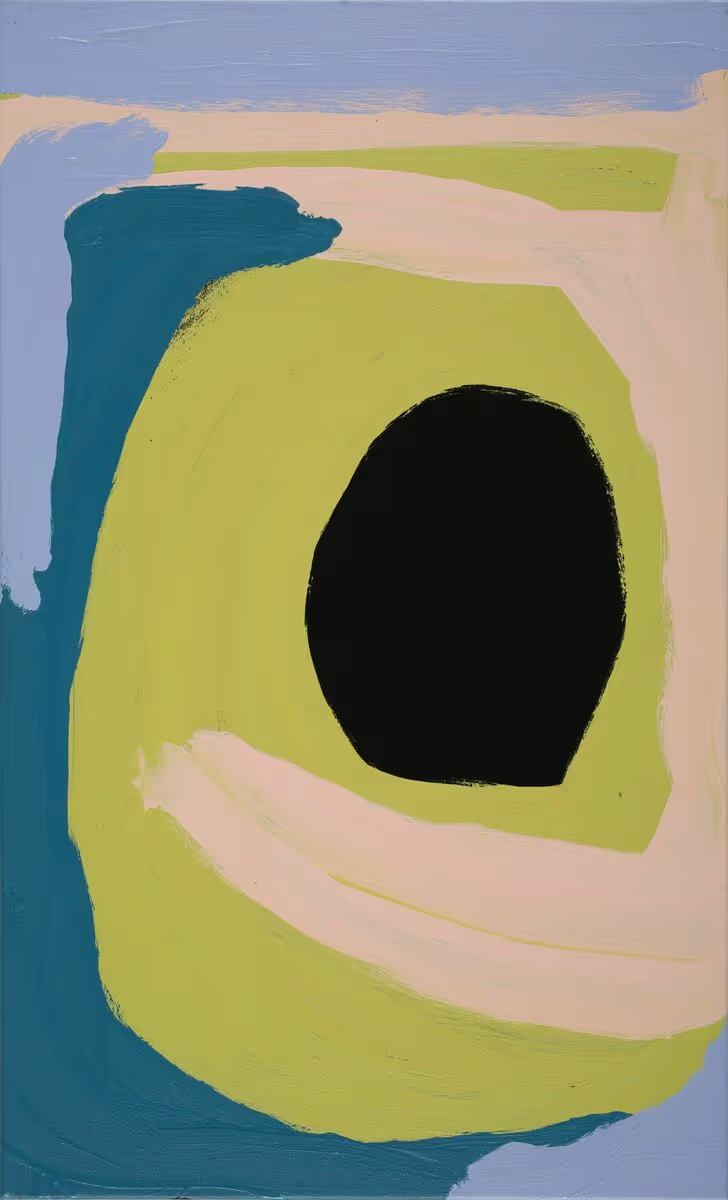Walykumunu
Katjarra Butler
27 Apr
2024
2024
18 May
2024
Katjarra Butler was born in the bush c.1946 at a place called Kuun. When Katjarra’s mother was pregnant with her, a python (Kuniya) appeared in front of her. Katjarra’s mother killed the snake, and Kuniya became Katjarra’s totem animal. Katjarra lived with her family in the bush as a child and teenager. As a young woman, she married Anatjari Tjakamarra, and gave birth to her daughter Sally Tjimpuna Butler at the site of Wingarntjirri. The family lived a traditional nomadic lifestyle on their homelands northwest of Tjukurla, living off bush food and natural water sources. In the 1960s, Katjarra and her family were picked up near Kintore and taken to Papunya during a drought which forced many Western Desert peoples into contact with white settlers for the first time. For many years, Katjarra lived at Papunya, later moving to the Docker River settlement and then settling in Tjukurla after its establishment as part of the homelands movement of the 1980s. Katjarra began painting around 2001 and, along with other women in the community, helped to establish Tjarlirli Art in Tjukurla in 2006. Due to her seniority and wealth of knowledge, Katjarra is culturally responsible for many sites and stories. The works in this exhibition are demonstrative of this; Katjarra has depicted sites scattered all across her vast homelands, spanning hundreds of kilometres on the edge of the Gibson Desert. Katjarra’s work is both narratively and visually powerful, instantly recognisable through her signature gestural brushwork and powerful colour selection. She uses large round brushes to apply broad swathes of paint, rhythmically marking out geographical features - waterholes, mountains, sandhills and vast grasslands - with her entire body weight propelling the brush. Katjarra’s spirit is embodied in the power of her brushstrokes, as the broad fields of colour engulf the spectator and offer a momentary glimpse of Katjarra’s knowledge of the power and enormity of her Tjukurrpa.
Installation View
Artworks

















Artist Profile/s
Katjarra Butler
Lives
Katjarra was born quite close to Kulkurta and Purrungu at a place called Kuun. Kuun is the name of the waterhole there. Kuun is also the name of the yellow ochre. There is also a place very close to Kuun that Katjarra refers to as her home and is one of her Tjukurrpaor (dreaming) which she paints. It is called Kuurmankutja. This place is home to the two Kuniya (python) dreaming. The other dreaming that she paints is Marrapirnti. Her father was Lilyiwara Tjungurrayi and her mother was Mangkatji Nangala. Katjarra had an older sister Nguya Napaltjarri and younger brother Peter Tjanpaltjarri, now both deceased.Katjarra lived with her parents, siblings and immediate family in the bush as a child, teenager and young married woman. She lived with her family and later with her husband in the country to the west of Tjukurla in the Kulkurta area which is south of the Baron Range in Western Australia.Katjarra lived a traditional nomadic lifestyle only, travelling families within their family's country and lived off the animals that they hunted and bush food that they collected. They collected and drank water from the rockholes, soakages, springs and claypans (waterholes). All the travelling was done on foot.Katjarra has been painting since the 1990s, and began after the passing of her husband, Papunya Tula founder Anatjari Tjakamarra. She has been celebrated with many awards nominations, including winning the major award for the Wyndham Prize in 2016, and has also exhibited in both Australia and overseas in both group and solo shows.Her powerful works are a commanding presence in any space, and her love of painting is evident in her prodigious output. She uses huge round brushes to apply broad swathes of paint, rhythmically marking out waterholes with her whole body weight propelling the brush.She then builds up the other landscape features, like puli (rocks) tali (sandhills) and vast grasslands. Katjarra’s spirit is embodied in the power of her brushstrokes, the broad fields of colour engulfing the spectator and offering a momentary glimpse of Katjarra’s knowledge of the power and enormity of her tjukurrpa.

